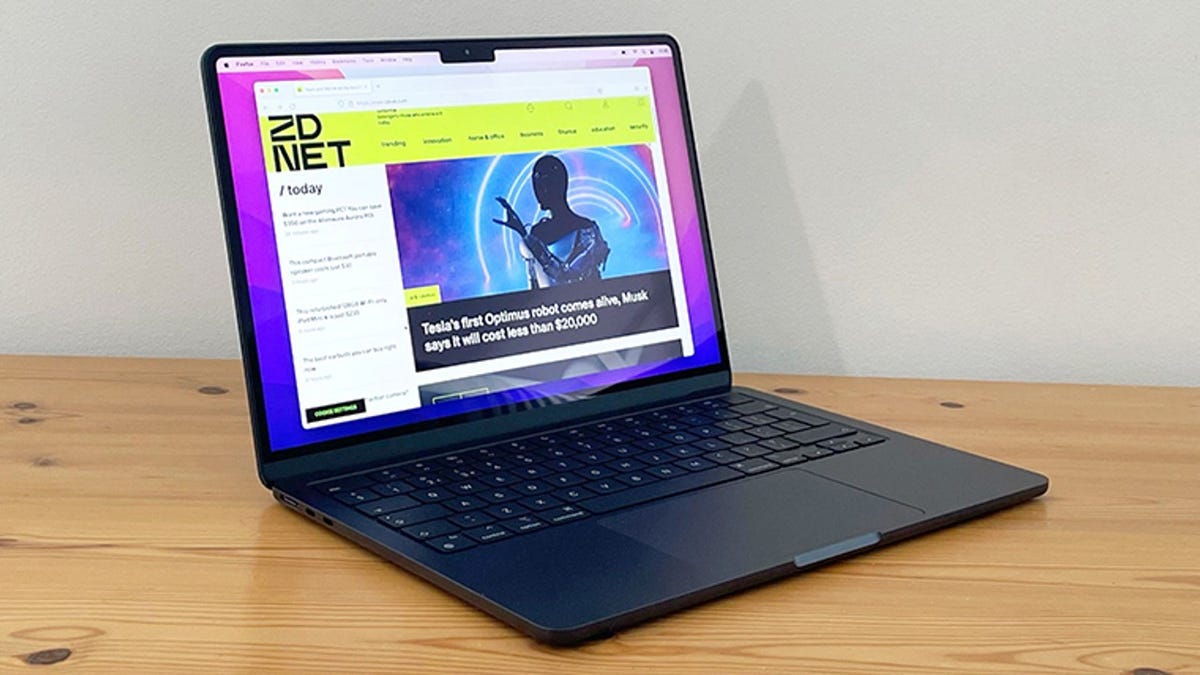
33 years of experience
30 hands-on product reviewers
10,000 square feet of lab space
An HDMI splitter is a simple yet useful device that allows you to send a single HDMI signal to multiple displays. For instance, you can connect an HDMI cable from a media center PC to the splitter's input, and then connect HDMI cables from the splitter's output ports to TVs and monitors. While this is handy at home, HDMI splitters are also used in offices, conference centers, and venues that need to distribute output to multiple screens or TVs.
Not all HDMI splitters are created equal. Some are powered and can act as repeaters, boosting the HDMI digital signal and allowing you to exceed the normal distance limitations of the interface. This feature is particularly useful if you need to transmit the HDMI signal over long distances.
Also: The best power banks: Expert tested
What is the best HDMI splitter right now?
I've spent years testing tech products and accessories ranging from HDMI splitters to electric screwdrivers to portable power stations. Before we go for the deep dive on HDMI splitters, let me cut to the chase and tell you that for the majority of people who are looking for an HDMI splitter, the Amazon Basics HDMI Splitter is all you'll need. It takes an input and can push that out to two displays. It's simple to use and super reliable.
Stay tuned to find out what else makes this the best overall HDMI splitter, and for a bunch of alternatives that can cater to those who need something different.
The best HDMI splitters of 2024
Amazon Basics HDMI Splitter
Best HDMI splitter overall
If you need to send one source signal to two displays simultaneously -- for example, sending the output from a computer to two monitors, or to a TV and a projector -- this is the splitter for you.
It might seem basic, but for a good 90% of those who need a splitter, this is all you'll need. There's no point overspending on an all-singing, all-dancing HDMI splitter if you just need to split a signal into two displays.
This splitter also supports up to 4K@60Hz -- again, more than enough for most people's needs. It's a solid, reliable unit, and the reviews on Amazon support this conclusion.
Amazon Basics HDMI Splitter tech specs: 2-in:1-out | Up to 4K@60Hz | Power: USB-A to microUSB power cable (USB adapter not included)
Show Expert Take Show less
Vpfet HDMI Extender Splitter
Best HDMI splitter for long-distance splitting
We've gone from basic to high-tech. This HDMI splitter takes a single HDMI input and splits it up to four times, but rather than sending the signal along HDMI cables, it sends it over an ethernet cable.
If you have a big home, this could very well be the solution you are looking for, but this model has been designed for bigger workloads, such as classrooms, digital signage, churches, meeting rooms, and conference centers.
For such a specialist unit, there aren't a huge number of reviews, but what is out there shows this to be a strong product.
Vpfet HDMI Extender Splitter tech specs: 1-in:4-out | up to 1920x1200@60Hz and 1080p@60Hz | Up to 165 ft range | Power: 12V power adapter
Show Expert Take Show less
Icuixian HDMI Splitter
Best HDMI splitter for lots of outputs
Not many people will want an HDMI splitter with 8 outputs, but if you are one of those people wanting to drive a lot of displays, this is a perfect solution.
This unit looks industrial and much like a network switch. It has LED lights on the front to show which ports are active, and it takes a 5V DC power input.
This splitter has decent input and output ranges (33.5 and 66.5 feet, respectively). It supports both copy mode, where the input is protected to all eight outputs, and extended mode, where, when connected to a computer, the output can be a second display. The reviews are very positive, with owners citing excellent quality and reliability, with no lag.
Icuixian HDMI splitter tech specs: 1-in/8-out | 4Kx2k@30Hz | Power: 5V DC
Show Expert Take Show less
EzcooTech HDMI Splitter
Best HDMI splitter for avoiding HDCP hassles
This is the perfect splitter for modern gaming consoles such as the PS5 and Xbox Series X, as well as high-end gaming PCs and capture cards. Its support for high resolutions and frame rates puts it at a caliber above the rest. It also understands HDCP2.3 copy protection, so there are fewer hassles when it comes to outputting the video stream.
EDID (Extended Display Identification Data) switches allow the switch to work with Dolby Vision and Dolby Atmos, and there's also a built-in downscale that allows the splitter to handle resolution changes.
This is more than most people need, but it is a worthwhile choice for those wanting to stream games to the web or move high-resolution media to multiple displays.
EzcooTech HDMI Splitter tech specs: 1-in:2-out | Up to 8K@60Hz and 4K@120Hz | Power: USB-C input
Show Expert Take Show less
Bytecc HDMI Repeater
Best HDMI splitter for extending cable length
This is a simple 1-in/1-out repeater with one simple job -- extending the span of HDMI cabling you can use. The manufacturer claims it can take an input cable of up to 15m/49ft and an output 10m/33ft.
It supports a broad range of audio formats, including DTS-HD, Dolby TrueHD, DTS, Dolby-AC3, and DSD.
Not many people will need a repeater because their HDMI inputs and outputs will be close together, but if you do, this is a great choice, and it's a product with strong reviews.
Bytecc HDMI Repeater tech specs: 1-in:1-out | 8K@60Hz | USB-C input 5V/2A
Show Expert Take Show less
HDMI splitters are one of those things that most people will never need, and most of those who do need one will only need something simple, which is why my top pick is the Amazon Basics HDMI Splitter 1-in/2-out splitter. It's cheap and cheerful, and does what more than 90% of those who will want an HDMI splitter will ever need.
HDMI Splitter | Price | Inputs | Outputs | Max Resolution |
Amazon Basics HDMI Splitter | $21 | 1 | 2 | 4K@60Hz |
Vpfet HDMI Extender Splitter | $130 | 1 | 4 | 1920x1200@60Hz |
Icuixian HDMI Splitter | $32 | 1 | 8 | 4K@30Hz |
EzcooTech HDMI Splitter | $30 | 1 | 2 | 8K@60Hz |
Bytecc HDMI Repeater | $24 | 1 | 1 | 8K@60Hz |
Choose this HDMI splitter… | If you want… |
Amazon Basics HDMI Splitter | A simple, inexpensive HDMI splitter. Most people will want to split one input into two outputs, and this does that. |
Vpfet HDMI Extender Splitter | A professional splitter that pushes the signal to receiver units over network cable. This is great for more complicated home setups. |
Icuixian HDMI Splitter | To push and output to a lot of displays. This is less of the home and more for classrooms, conference rooms, and such. |
EzcooTech HDMI Splitter | Support for high resolutions and framerates. This is perfect for those who want to use capture cards and run high-end PCs and game consoles. |
Bytecc HDMI Repeater | A simple HDMI repeater. Perfect for pushing audio and video across long cable lengths. |
When choosing an HDMI splitter, there are several factors to consider to ensure you select the right one for your needs. Here are some key factors to keep in mind:
- Number of outputs: How many displays do you want to connect to the splitter? HDMI splitters are available with different numbers of outputs, ranging from two to eight or more.
- Resolution and refresh rate: You will need to make sure that the HDMI splitter you choose supports the resolution and refresh rate of your source device and displays.
- Audio format: Are you using audio formats such as Dolby Digital or DTS? If so, you need to make sure that the HDMI splitter supports the audio format you want to use.
- Signal boosting: If you need to transmit the HDMI signal over long distances, consider a powered HDMI splitter. These act as repeaters and boost the digital HDMI signal, allowing you to surpass the normal length limitations of the format.
- Budget: Consider your budget when choosing an HDMI splitter. Prices can vary depending on the brand, number of ports, and additional features. The more features you want, the more it will cost you.
Most people never need an HDMI splitter. They hook up their media output to a single TV or monitor and they're done. But there are those who want to make things more complicated, taking a single output and pushing that to multiple displays. Throw in audio formats such as those from Dolby and things can get more complicated.
Fortunately, there is an HDMI splitter to suit your needs, from simple to complicated.
I have year of reviewing a variety of tech products and accessories ranging from large power stations to tiny thermal cameras for phones. To filter down the whole of the HDMI splitter market to a handful of choices, I've relied heavily on user reviews. There are so many different input and output devices and setups that the crowdsourcing nature of user reviews was the best approach to selecting the best HDMI splitters.
As the name suggests, an HDMI splitter takes an HDMI input signal from a source device (such as a games console or media box) and splits it into multiple output signals, allowing you to connect multiple displays to a single source device.
While there is no maximum length for an HDMI cable specified in the specs, signal attenuation (think leakage) and cable quality normally limits it (with the best quality cables and components, the limit is about 15 meters/49 feet).
No, a splitter splits the input into multiple outputs. If you want to connect multiple sources to a single display, you need an HDMI switch such as the Anker HDMI Switch that allows two inputs to be switched between on a single display.
If you want to get even more fancy and take multiple inputs and mix them, adding things like transitions and even picture-in-picture, you need an HDMI mixer, such as the RGBlink Mini Video Mixer Switcher, which can take four HDMI inputs, along with an audio input, and mix those into one output.
Here are a few alternative HDMI splitters for your consideration. While these didn't make it onto the main listing, don't let that put you off because they are very capable units.

 2 weeks ago
8
2 weeks ago
8




:quality(85):upscale()/2023/09/21/802/n/1922729/d9a11ce9650c8850437280.00070284_.jpg)

:quality(85):upscale()/2024/10/30/955/n/42301552/28e49c1e6722ab5b973b38.46745005_.jpg)

 English (US) ·
English (US) ·